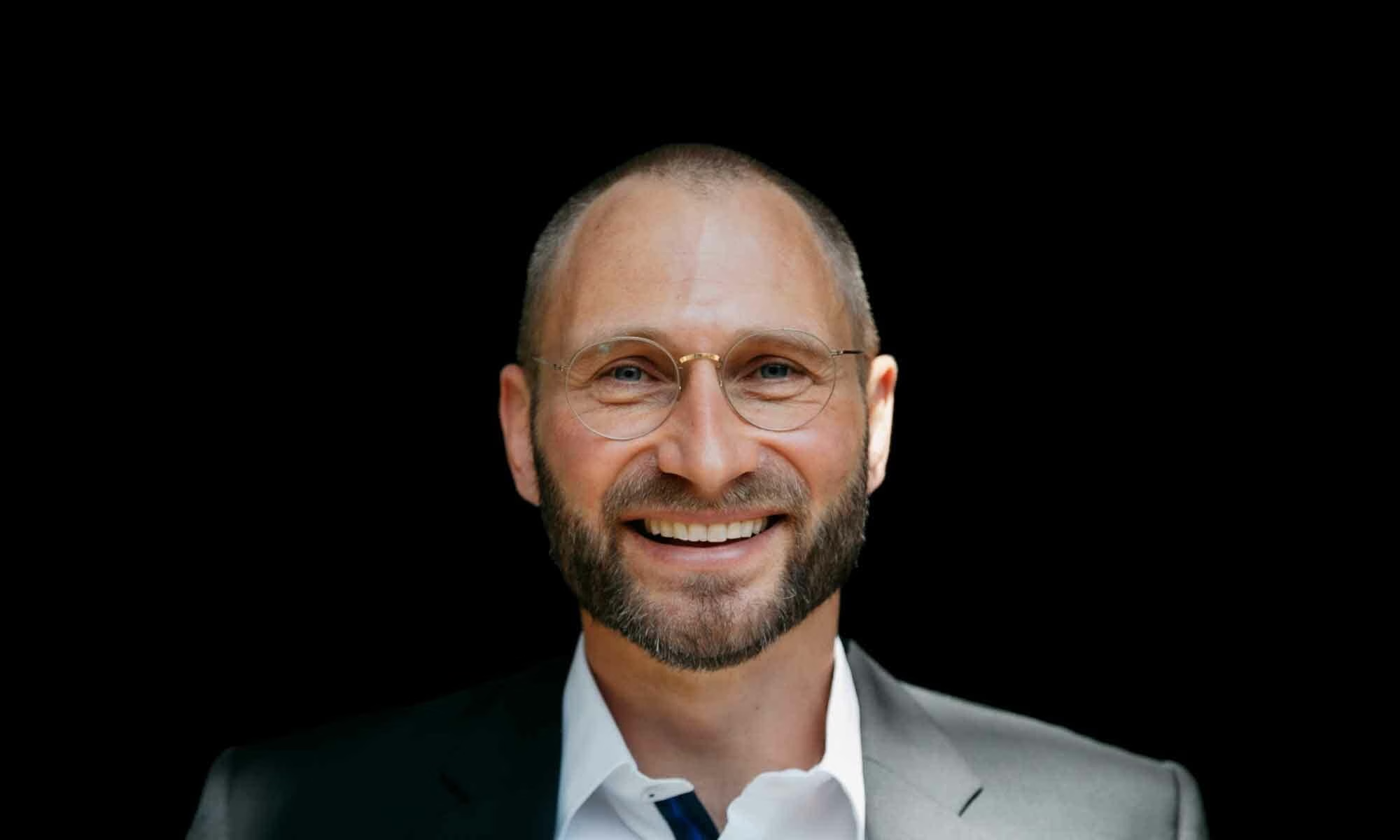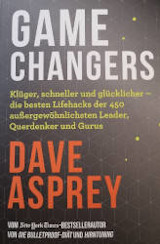Smarter, faster and happier - the best life hacks from the 450 most extraordinary leaders, lateral thinkers and gurus. The 46 laws of success. Insights into: "Game Changers" by Dave Asprey.
Contents
Dave Asprey has interviewed 450 of the world's most successful personalities (in his view) and analyzed their success stories. His result: a kind of essence of how to live to be 180 years old and extremely successful as well as mentally and physically fit. Sounds interesting? Or does it sound more like charlatanry? Sometimes, when reading the book, you get the impression that you are sitting in an event organized by a motivational guru who also sells CDs with spoken texts such as "Use the power to say no".
To say one thing in advance, there is a kernel of truth behind all the life hacks, but the way the book is presented as a whole is too bizarre for me personally. In particular, when reading this book it becomes very clear that the book itself is definitely a life hack for the author. He will certainly become (successfully) richer through the sale of the book and all the things he praises in it and in which, as he himself writes, he is often involved. Whether the reader really benefits depends on their own prior knowledge. For me at least, there was nothing (useful) new in it.
The laws
Overall, some of the 46 laws seem rather superficial, ranging from "focus on strengths" and "mediocrity is the enemy" to "learn to say no". There are also some great T-shirt slogans, such as "The less you have, the more you gain" (Law 34) or "Meditate faster" (Law 40). The absolute classic is also represented: "What doesn't kill you makes you stronger" (Law 30).
The author also doesn't leave out the topic of drugs of all kinds and writes quite openly about the possible benefits of various drugs such as mushrooms, (microdosed) LSD, modafinil, nicotine and caffeine in his 7th law "Smart Drugs will always exist". Well, I guess that's part of it if you want to discuss all kinds of life hacks, but I found the comments rather disconcerting - may be due to my socialization 😉
However, every now and then you will also find a few key statements that you should definitely internalize if you have not already done so, for example in chapter 5: "Your health always comes first, because it is the basis of your performance in everything you do."
Overall, however, I kept getting the feeling while reading that I was sitting in a performance by a cliché-fulfilling motivational guru who mainly praises his own genius and products. An example from the eleventh law (Mediocrity is the enemy): "When I created the special-process-roasted, no-shake, lab-tested, mold-free coffee beans that are part of Bulletproof Coffee, there was no market for it at all. [...] Six years later, in 2018, people have drunk more than 100 million cups of Bulletproof Coffee made with these special beans, and thousands of people who have problems with standard coffees have thanked me for the opportunity to drink coffee again." This writing style, which appears frequently in the book, always reminds me of press conferences or tweets by a president we all know.
And I rarely warmed to the ideas of his "gurus" either, even they always sounded like completely exaggerated publicity, even if the gurus may have done all that. Example from the 25th law: "Cynthia Pasquella-Garcia is a famous nutritionist, spiritual expert, model, media personality and bestselling author. Oh, and before that she was a computer engineer." Somehow that's too much for me.
In conclusion, however, a few examples of the fact that behind the many fireworks in the book, important (albeit perhaps not new) insights are also passed on from time to time. For example, the author writes a lot about healthy eating and his experts, in my opinion, hit the nail on the head in parts: "Dr. Hyman's nutrition principles are simple: eat foods that don't have a bar code or nutrition label. That means eating real foods like avocados, almonds, meat from grass-fed animals and lots of vegetables. In other words: [...] Eat like your grandmother."
But the author also makes a few important brief points about the general attitude to life that you should always be aware of: "Concentrate on the journey, not the destination. If you don't enjoy yourself on the way there, you won't be happy when you arrive at your destination [Law 32]." And in his 46th law, he also points out how important mindfulness is. In other words, consciously reducing the pace of life/work and being aware of your surroundings, people, nature, etc. He also advises active appreciation, i.e. actively looking for things that you can authentically appreciate and being truly grateful for these things. In my opinion, this is a skill that contributes significantly to the happiness we feel in life.
Overall rating

Overall rating: 1 out of 5 stars. I think the basic idea itself is brilliant: to look at what the most successful people have in common and try to preserve the essence of this. But there are four things that bother me in particular:
Firstly I can't get to grips with the author's narrative and writing style. Higher, faster, further, everything seems so exaggerated, artificial, showy. Like a bad American cliché. In many places, the book seemed to me like a conversation with a braggart who tells you who he's already met where and what he's already experienced where and how.
Secondly it's nice that a few basic life lessons are also included in the book, e.g. that money is not the most important thing in life. But it feels like 80% of the 46 laws are just hot air.
Thirdly I'm a fan of science and that's why the cover text got me going - the 46 laws would be backed up by science. But to be honest, there is little to nothing really scientific about it. The author refrains from using various sources, comparing them, reflecting on them and weighing them up, instead generally relying on the specialist knowledge of his interviewed experts in a very abbreviated form. But even with experts, one must not forget that there are also people of this type who claim that the earth is flat. The scientific underpinning is therefore hollow and in great danger of collapsing.
Fourthly I can't help but get the impression that the whole thing is a sales event for one of the author's companies or holdings. Various specific services or things are repeatedly advertised, such as coaching offers, blue light filter glasses, stool examinations (yes, "feces"!) and much more.
So if you're thinking about self-optimization, I recommend "Atomic Habits„, "The subtle art of not giving a f*ck" or "The 7 Habits of Highly Effective People. Powerful lessons in personal change„.


